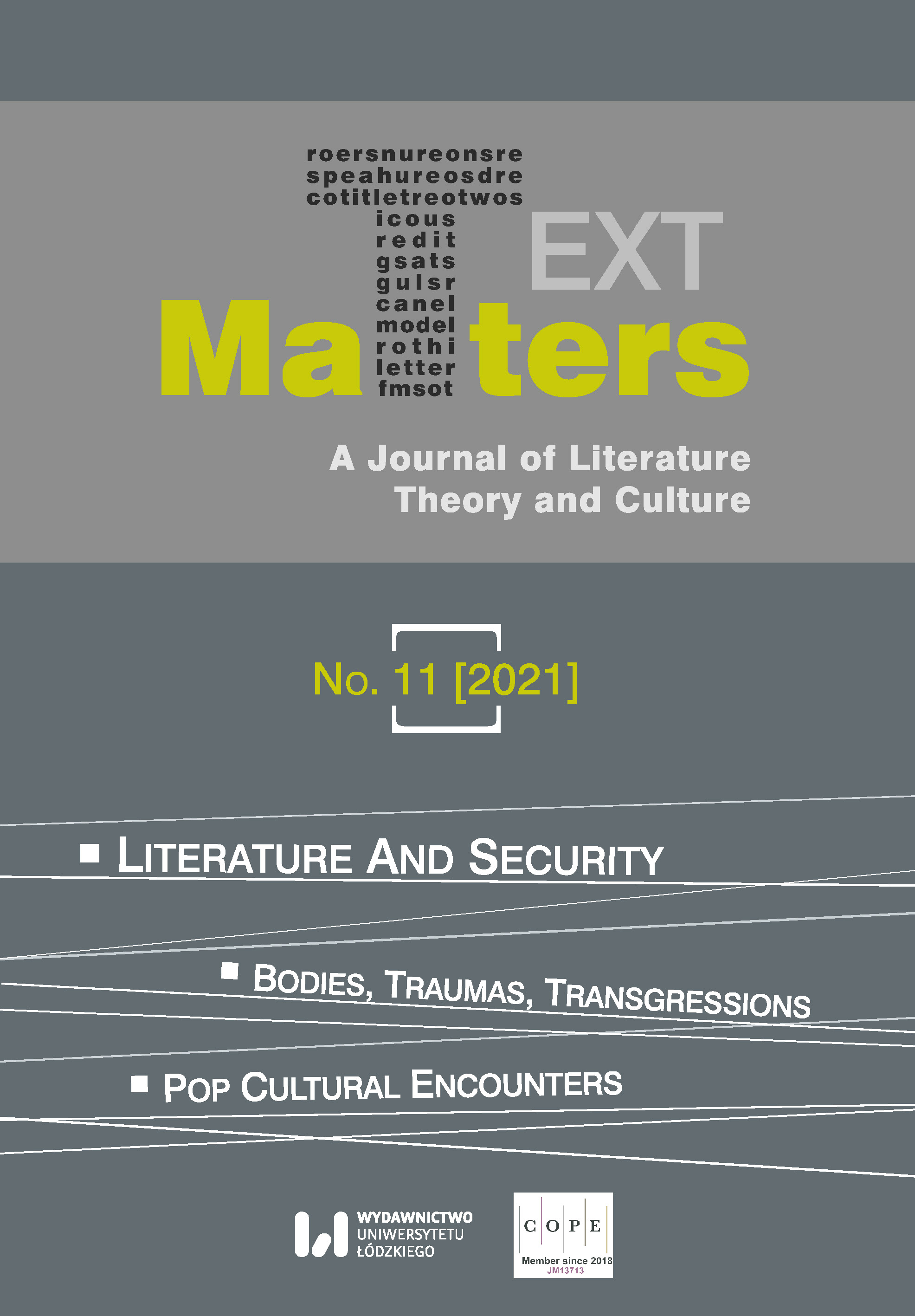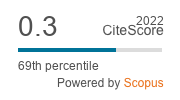Dystopias in the Realm of Popular Culture: Introducing Elements of Posthuman and Postfeminist Discourse to the Mass Audience Female Readership in Cecelia Ahern’s Roar (2018)
DOI:
https://doi.org/10.18778/2083-2931.11.14Keywords:
popular culture, popular literature, romance novels, the feminist discourse, dystopia, the posthuman, AhernAbstract
This article analyzes selected short stories in Cecelia Ahern’s thirty-narrative collection Roar (2018) to see how (and with what losses or gains) the perspectives of posthuman and postfeminist critique can be incorporated via the common dystopic umbrella into the mainstream female readership of romance literature. The dystopic worlds created by Ahern in Roar portray inequality and power imbalances with regard to gender and sex. The protagonists are mostly middle-aged women whose family and personal lives are either regulated by dystopic realities or acquire a “dystopic” dimension, the solutions to which are provided by, among other tropes, “posthuman” transformations. Roar introduces other-than-human elements, mostly corporeal alterations, in which the female bodies of Ahern’s characters become de-formed and re-formed beyond androcentric systems of value. The article raises the question of whether feminist and, to some extent, “posthuman” (speculative) approaches, need to be (and indeed should be) popularized in such an abridged way as Ahern does in her volume. The answer depends upon the identification of the target audience and their expectations. Ahern’s Roar represents popular literature intended to be sold to as many readers as possible, regardless of their education, state of knowledge, etc. Viewed from that perspective, what some critics could perceive as the collection’s structural weaknesses constitutes its utmost marketing asset. The essay argues that despite not being a structurally innovative work of art, Ahern’s book fulfils the basic requirements of the popular fiction genre, intermittently providing some extra, literary gratification and popularizing rudimentary elements of the posthuman and postfeminist thought.
Downloads
References
Ahern, Cecelia. Roar. HarperCollins, 2018.
Google Scholar
Balter, Ariel. “Roar: Thirty Stories, One Roar. A Book Review. New York Journal of Books, 16 Apr. 2019, https://www.nyjournalofbooks.com/book-review/roar-thirty-stories-one-roar accessed 15 Feb. 2021.
Google Scholar
Bennett, Jane. Vibrant Matter: A Political Ecology of Things. Duke UP, 2010.
Google Scholar
DOI: https://doi.org/10.2307/j.ctv111jh6w
“Cecelia Ahern.” Cecelia Ahern, https://www.cecelia-ahern.com/about accessed 15 Feb. 2021.
Google Scholar
“Cecelia Ahern.” Fantastic Fiction, http://www.fantasticfiction.com/a/cecelia-ahern/ accessed 15 Feb. 2021.
Google Scholar
Connolly, Linda, and Tina O’Toole. Documenting Irish Feminisms: The Second Wave. Woodfield, 2005.
Google Scholar
Evans, Martina. “Roar Review: Cecelia Ahern’s Fairy Tales Get Real.” The Irish Times, 3 Nov. 2018, https://www.irishtimes.com/culture/books/roar-review-cecelia-ahern-s-fairy-tales-get-real-1.3673232 accessed 10 Nov. 2019.
Google Scholar
Fiske, John. Understanding Popular Culture. Routledge, 1989. https://doi.org/10.4324/9780203837177
Google Scholar
DOI: https://doi.org/10.4324/9780203837177
Gelder, Ken. Popular Fiction: The Logics and Practises of a Literary Field. Routledge, 2004. https://doi.org/10.4324/9780203023365
Google Scholar
DOI: https://doi.org/10.4324/9780203023365
Genz, Stephanie, and Benjamin A. Brabon. Postfeminism: Cultural Contexts and Theories. Edinburgh UP, 2009.
Google Scholar
Jordan, Judith V. “Restoring Empathic Possibility,” pp. 122−27. “Shame and Humiliation: From Isolation to Relational Transformation,” by Linda M. Hartling, Wendy B. Rosen, Maureen Walker and Judith V. Jordan. The Complexity of Connection: Writings from the Stone Center’s Jean Baker Miller Training Institute, edited by Judith V. Jordan, Maureen Walker and Linda M. Hartling, Guilford, 2004, pp. 103−28.
Google Scholar
Killeen, Jarlath. “Nora Roberts: The Power of Love.” Twenty-First-Century Popular Fiction, edited by Bernice M. Murphy and Stephen Matterson, Edinburgh UP, 2018, pp. 53−65.
Google Scholar
DOI: https://doi.org/10.1515/9781474414869-007
MacCormack, Patricia. Posthuman Ethics: Embodiment and Cultural Theory. Ashgate, 2012.
Google Scholar
McRobbie, Angela. “Postfeminism and Popular Culture: Bridget Jones and the New Gender Regime.” Interrogating Postfeminism: Gender and the Politics of Popular Culture, edited by Yvonne Tasker and Diane Negra, Duke UP, 2007, pp. 27−39. https://doi.org/10.1215/9780822390411-002
Google Scholar
DOI: https://doi.org/10.1215/9780822390411-002
Nayar, Pramod K. Posthumanism. Polity, 2014.
Google Scholar
O’Carroll, Sinead. “Savita Halappanavar: Her Tragic Death and How She Became Part of Ireland’s Abortion Debate.” The Journal.ie, 29 Apr. 2018, https://www.thejournal.ie/eighth-amendment-4-3977441-Apr2018/ accessed 15 Feb. 2021.
Google Scholar
Patrick, Bethanne. “Roar by Cecelia Ahern, Book Review: ‘Funny, Wise and Weighty—In a Good Way.’” Independent, 26 Apr. 2019, http://www.independent.co.uk/arts-entertainment/books/reviews/cecelia-ahern-roar-book-review-a8887711.htm The Washington Post, 23 Apr. 2019, http://www.washingtonpost.com/entertainment/books/in-roar-cecelia-ahern-uses-fables-to-delve-into-what-it-means-to-be-a-woman/2019/04/22/b04a446c-61df-11e9-9412-daf3d2e67c6d_story.html accessed 10 Nov. 2019.
Google Scholar
Poloczek, Katarzyna. “From the Kitchen into the Bathroom: Feminist (post) Theory in Crisis.” Theory That Matters: What Practice After Theory, edited by Małgorzata Myk and Kacper Bartczak, Cambridge Scholars, pp. 218−36.
Google Scholar
Radway, Janice A. Reading the Romance: Women, Patriarchy and Popular Literature. The U of North Carolina P, 1991.
Google Scholar
Tasker, Yvonne, and Diane Negra. “Introduction: Feminist Politics and Postfeminist Culture.” Interrogating Postfeminism: Gender and the Politics of Popular Culture, edited by Yvonne Tasker and Diane Negra, Duke UP, 2007, pp. 1−25. https://doi.org/10.1215/9780822390411-001
Google Scholar
DOI: https://doi.org/10.1215/9780822390411-001
Wolfe, Cary. What is Posthumanism? U of Minnesota P, 2010.
Google Scholar
Published
How to Cite
Issue
Section
License

This work is licensed under a Creative Commons Attribution-NonCommercial-NoDerivatives 4.0 International License.













